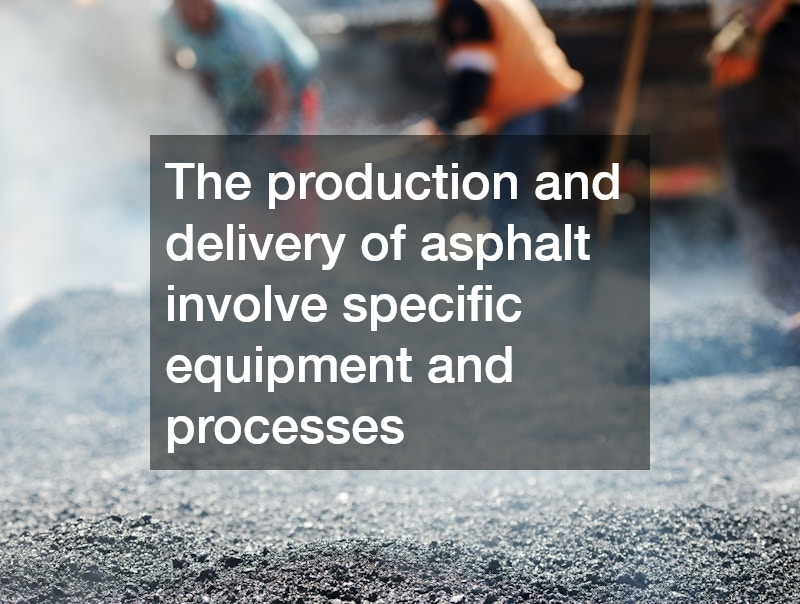
Commercial asphalt paving contractors utilize unique equipment in their daily work. Understanding these tools can help you appreciate the complexity of pavement installation and maintenance.
What Is the Most Commonly Used Paving Equipment?
Commercial asphalt paving involves a variety of machinery, including pavers, rollers, and trucks. Each type of equipment serves a specific purpose in the paving process.
The primary piece of equipment used in asphalt paving is the paver. These machines are responsible for laying down the asphalt material in a precise and controlled manner. They allow for a uniform thickness and consistency, which is crucial for the performance of the pavement.
In addition to pavers, rollers are indispensable in the asphalt paving process. They are designed to compact the asphalt after it has been laid down, ensuring that the surface can withstand traffic and environmental stress. Without proper compaction, the asphalt may deteriorate prematurely.
Another important equipment type is the dump truck, which transports the hot asphalt to the job site. The efficiency and performance of these trucks greatly impact the overall workflow of the paving operation. Coordinating the delivery of asphalt with the paving process is essential for maintaining the quality of the finished surface.
How Do Asphalt Pavers Work?
Asphalt pavers are critical for laying asphalt. They distribute and level the hot asphalt before it solidifies, ensuring a smooth surface for roads and parking lots.
These machines run on tracks and are equipped with a hopper that holds the hot asphalt. Once the asphalt is poured into the hopper, it is fed into the paver’s screed, which levels and smooths the material as the machine moves forward. This continuous process is vital for ensuring seamless pavement.
As the paver moves, operators can adjust the screed to control the thickness and width of the asphalt layer. This flexibility allows for various project requirements, from highways to parking lots. Properly calibrated pavers contribute significantly to the overall durability and functionality of paved surfaces.
Furthermore, modern pavers often incorporate advanced technology, such as GPS and laser guidance systems, to enhance precision. These features improve the efficiency of the paving process and minimize material waste. The integration of technology in asphalt paving is transforming how roads and surfaces are constructed.
What Role Do Rollers Play in the Compaction Process?
Rollers are essential for compacting the asphalt after it is laid. The most common type of roller used in asphalt paving is the smooth drum roller. These rollers provide uniform compaction, which eliminates voids in the asphalt and helps achieve a dense surface. Proper compaction enhances the durability and longevity of the asphalt pavement.
In addition to smooth drum rollers, contractors may also use pneumatic rollers. These rollers employ air-filled tires to create a different type of compaction force. The flexibility of pneumatic rollers allows them to adapt to various surface conditions, making them valuable in specific paving scenarios.
Effective compaction is critical not only for the quality of the pavement but also for its safety and performance. Insufficiently compacted asphalt can lead to issues such as cracking and rutting over time. Hence, understanding the role of rollers in the paving process is vital for ensuring the structural integrity of the surface.
How Is Asphalt Produced and Delivered?
The production and delivery of asphalt involve specific equipment and processes. Asphalt is produced in an asphalt plant where raw materials, such as aggregates and liquid asphalt, are mixed together. The quality of the asphalt produced directly affects the performance of the pavement. It is essential that contractors choose the right mix design for the specific project requirements.
Once mixed, the asphalt is typically stored in large silos to maintain its temperature and consistency before being loaded into trucks for delivery. The transportation of hot asphalt is crucial as it needs to be laid while still hot to ensure proper adhesion to the underlying layers.
Delivery logistics are a key element of the asphalt paving process. Timing is everything; the hot asphalt must arrive at the job site at the right moment to coincide with the paving operation. This careful coordination ensures that the asphalt remains workable and maintains its quality until application.
What Safety Equipment Do Asphalt Paving Contractors Use?
Safety is paramount in any construction job. Personal Protective Equipment (PPE) is vital for asphalt paving contractors. This includes hard hats, safety goggles, gloves, and high-visibility vests. Each piece of protective gear is designed to minimize the risk of injuries on the job site, which can be particularly dangerous due to the heavy machinery and hot materials.
In addition to PPE, contractors often utilize safety signage and barriers around the job site. These elements help to alert both workers and the general public to potential hazards. Adequate safety measures are critical for creating a safe work environment and preventing accidents.
Moreover, ongoing training and education on safety practices are essential for all employees within the asphalt paving industry. Regular safety meetings and drills help reinforce the importance of following safety protocols. This culture of safety is crucial for the overall success and sustainability of paving operations.
Understanding the various equipment used by commercial asphalt paving contractors can provide insights into the complexities of road construction and maintenance. Each piece of equipment plays a vital role in the process, ensuring quality and durability in the paved surfaces.


